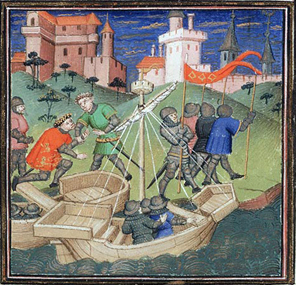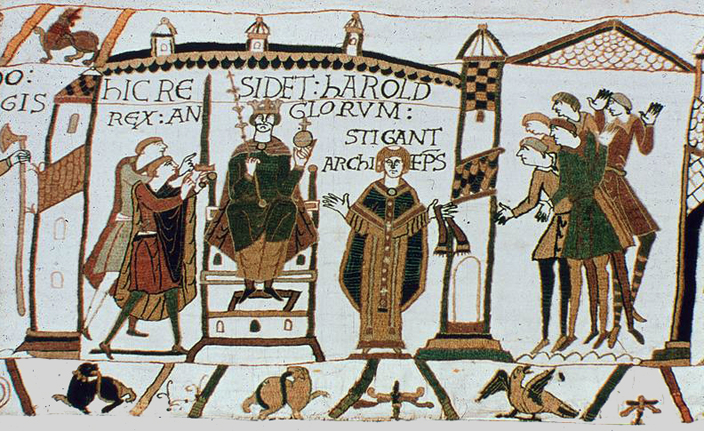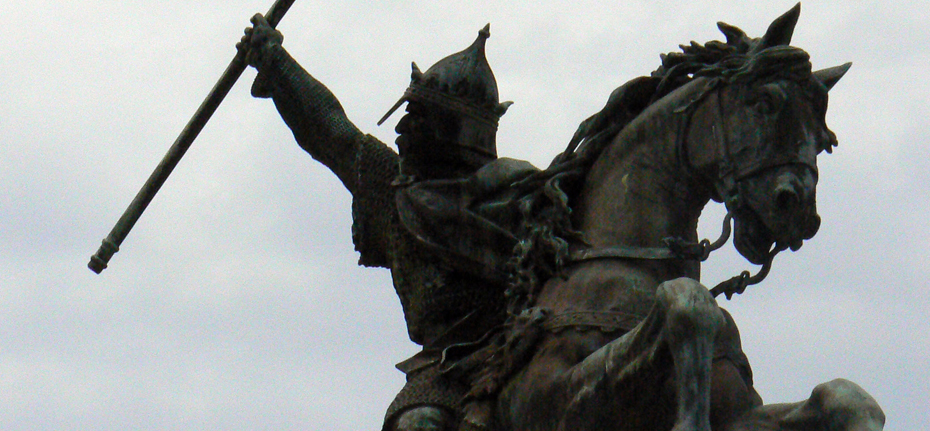William’s Conquest of England

William the Conqueror arriving in England, from a fifteenth century French manuscript.
Promises, Hollow Promises
William had claims to the throne of England, which had been promised to him in 1051 by his childless cousin, King Edward II. In reality, a promise meant little – there were always several eligible contenders, and battles for succession determined who would come to rule.
Planning Ahead
In 1064, William extracted an oath of allegiance from Harold Godwinson, Earl of Wessex, brother-in-law of Edward II, and another possible contender to the throne. The oath acknowledged William’s right to succeed Edward. Yet, a year earlier, William had named his eldest son, Robert Curthose, as his heir, indicating that he did not expect the conquest of England to go unchallenged.
Harold: King of England
On his deathbed in 1066, Edward II offered his throne to his brother-in law, Harold. It is uncertain whether Edward intended Harold to become king in his own right, or regent for his 14 year old great nephew, Edgar.

Harold as king of England, as depicted in the Bayeux Tapestry.
Preparing to Invade
Given the circumstances, William undertook the necessary preparation to invade England. This included obtaining the papal blessing to go ahead – reflecting William’s attention to legitimacy. While a papal approval would not give William the throne, it would make his claim stronger, if he managed to succeed.
Harald: The Other Pretender
There was a second pretender for the English throne: Harald Hardrada, the powerful king of Norway, who claimed legitimacy through an agreement between his predecessor and Harthacnut, the co-regent/step-brother of Edward II, who had died childless in 1042.
Harald and William: My enemy’s enemy is my friend?
Harold, Harald, and William were well aware of their respective intentions. It is possible that both Harald and William had agreed to launch a joint attack on England, knowing that this would force Harold to divide his forces. Perhaps Harald and William intended to divide England between them, at least initially. What is sure is that Harald and William also saw themselves as rivals. Both were astute enough to know that the first to attack would be at a disadvantage – as the English army would still be strong. Find out more.

